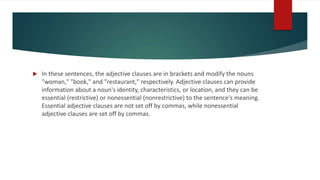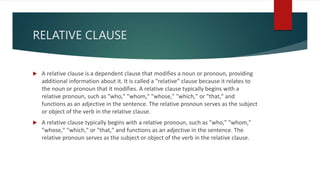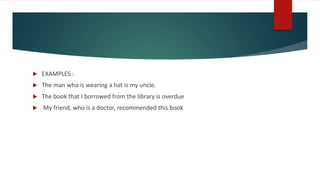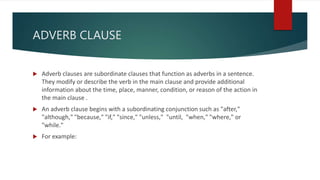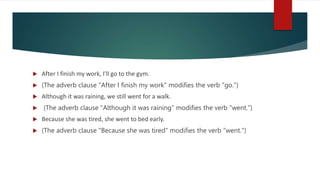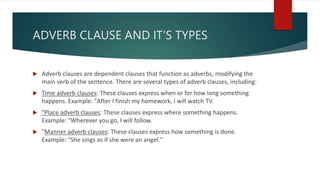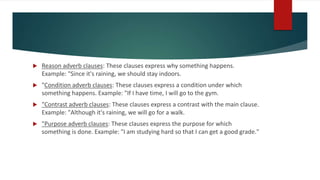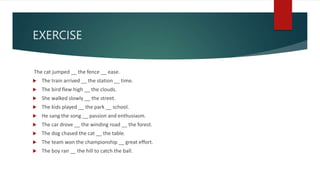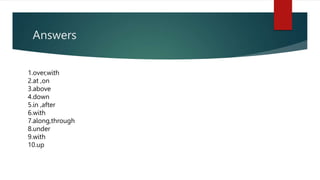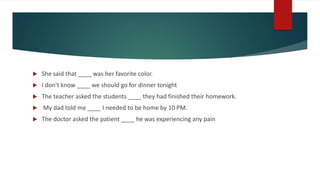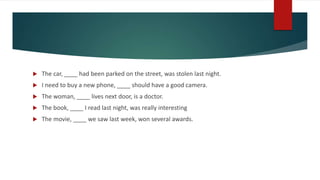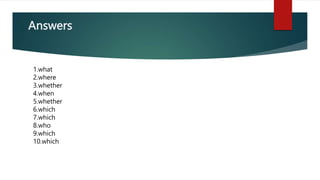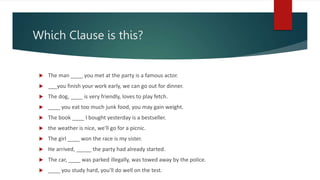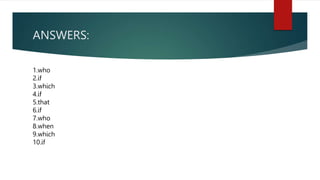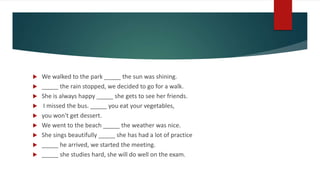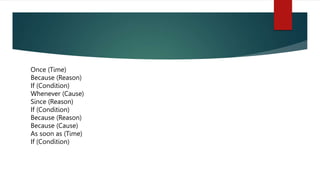The document provides examples and explanations of different types of phrases and clauses in English grammar, including noun phrases, verb phrases, prepositional phrases, adjective clauses, adverb clauses, and more. It defines what each type is and provides illustrative examples with explanations of the function of each phrase or clause in the example sentences. The course instructor is listed as Mam Ramish Nazir and there are 4 presenters listed for the document: Sandas Ansar, Ansa Ashraf, Hamza Ahmad, and M. Abdullah.
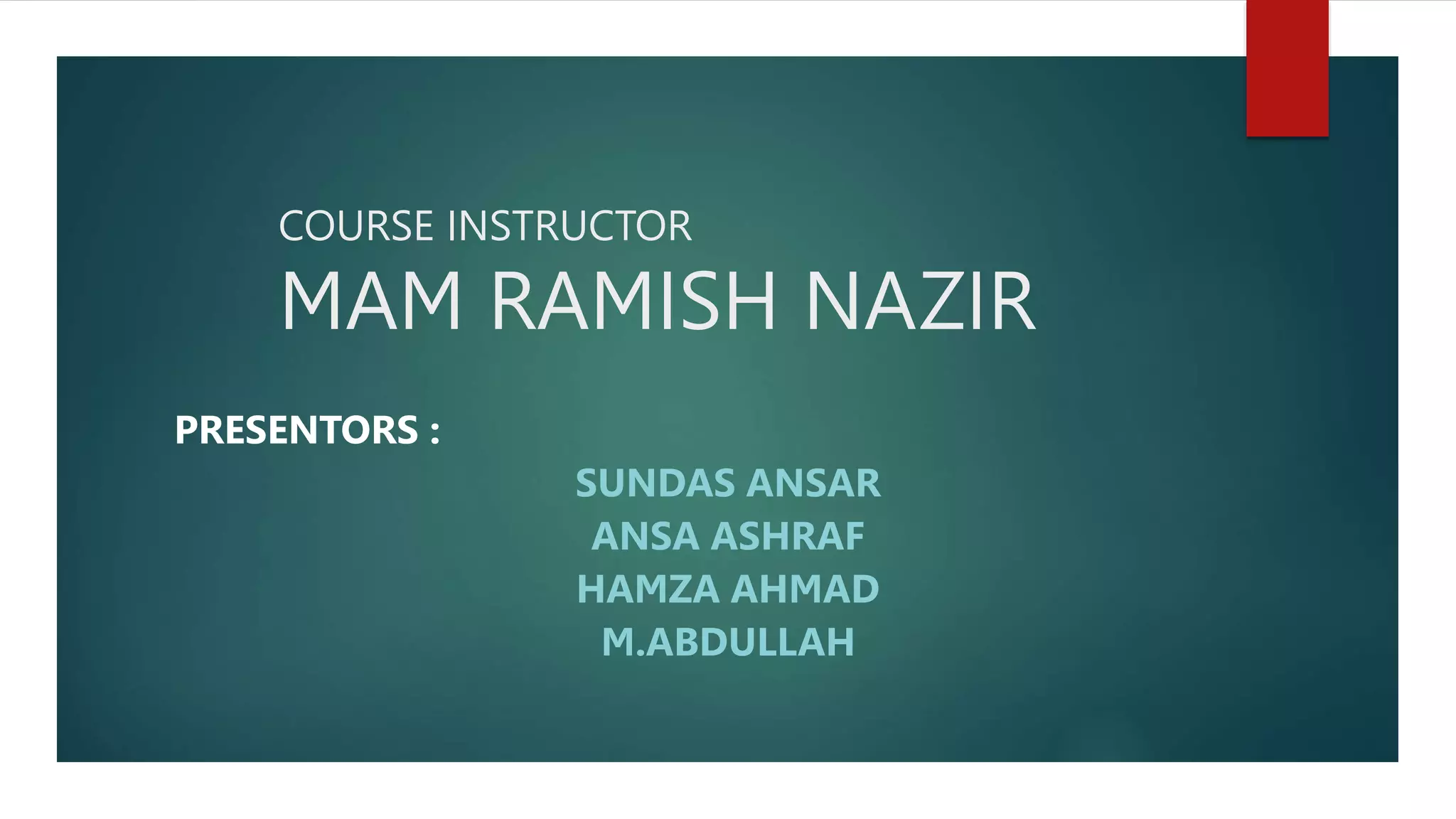
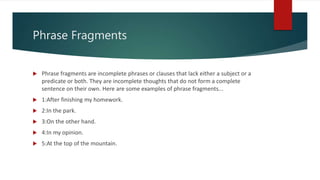
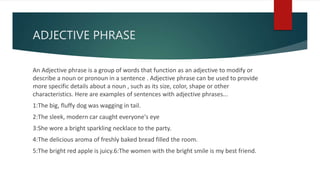
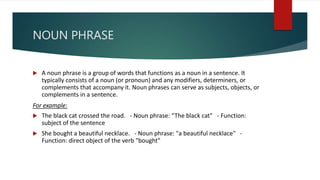
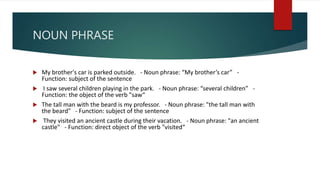
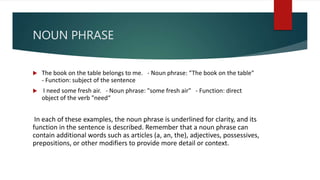
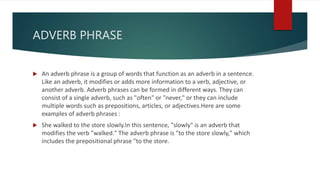
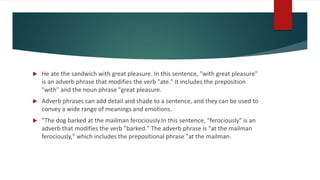
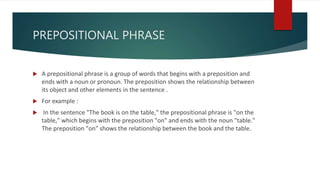
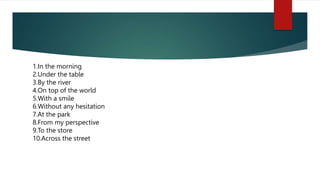
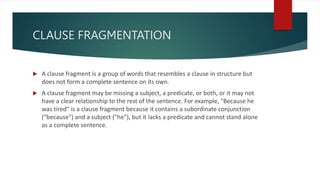

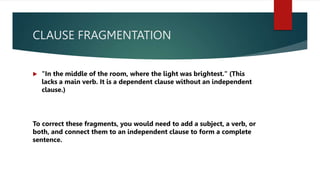
![NOUN CLAUSE
A noun clause is a type of subordinate clause that functions as a noun within a
sentence. It typically begins with a subordinating conjunction or a relative pronoun
and answers questions like "what?" or "who?“. For example:
I don't know [what he wants].
[Whoever arrives first] will get a prize.
[That she loves him]
Is obvious to everyone. In these sentences, the noun clauses are in brackets and act
as the subject, object, or predicate nominative of the sentence. Noun clauses can
also function as indirect objects, objects of prepositions, and appositives.](https://image.slidesharecdn.com/englishpresentation1-230822092856-f2c3152a/85/ENGLISH-PRESENTATION-1-pptx-14-320.jpg)
![ADJECTIVE CLAUSE
An adjective clause, also known as a relative clause, is a type of dependent clause
that functions as an adjective within a sentence. It typically begins with a relative
pronoun (such as "who," "whom," "whose," "which," or "that") or a relative adverb
(such as "when," "where," or "why") and provides additional information about a
noun or pronoun in the main clause.
EXAPMLES are as follows :
The woman [who lives next door] is a doctor.
The book [that I am reading] is very interesting.
The restaurant [where we had dinner] was very expensive.](https://image.slidesharecdn.com/englishpresentation1-230822092856-f2c3152a/85/ENGLISH-PRESENTATION-1-pptx-15-320.jpg)
